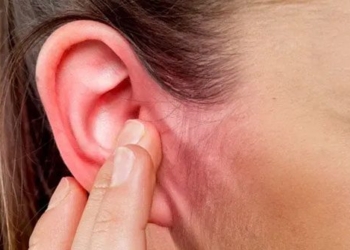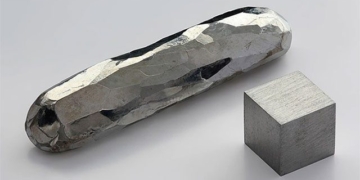Mark Mongiardo experiences fatigue, slurred speech, staggering, and a smell of alcohol despite not consuming any alcoholic beverages.
When Mark Mongiardo had been teaching for two years, someone commented that he smelled of alcohol. Mark was surprised, as he did not drink any alcoholic beverages. Over the years, teachers and basketball coaches often noticed a smell of alcohol emanating from him.
“I thought there was something wrong with me. I wasn’t sure what was happening. I always just thought I was tired,” said Mark, 40, who lives in Florida.
Mark often worked over 12 hours a day and believed that it was causing his exhaustion. Subsequently, he was arrested twice within six months for driving under the influence, even though he had not consumed any alcohol.
Upon researching online, Mark discovered the body’s self-fermentation syndrome, where a person can become intoxicated without drinking.

Mark Mongiardo with his wife and child. (Photo: Today).
Fatigue and the Smell of Alcohol
In 2005, Mark began his teaching and coaching career. He was repeatedly called into the principal’s office due to complaints about smelling of alcohol. The situation worsened from 2012 to 2016.
“Those were tough years in my life,” Mark recalled.
Eventually, he had to change jobs and became a sports director. Three weeks later, police tested Mark’s blood alcohol level while he was driving. Within six months, he faced penalties for operating a vehicle while intoxicated.
His wife even suspected that he was secretly drinking. “I had all the symptoms like slurred speech and staggering. So, for many years, she thought I was completely drunk,” Mark shared.
In 2019, Mark began searching online and learned about auto-brewery syndrome. At that time, he had to sell his house in New Jersey and move in with his wife’s family in Long Island, New York.
He struggled to find work, as previous accusations prevented him from returning to teaching. Even when applying for a job at a supermarket, his unstable history hindered Mark’s opportunities.
According to Today, Mark consulted a doctor in Staten Island who was familiar with auto-brewery syndrome. When he fasted, his blood alcohol level was zero, and he was completely sober. However, when he consumed sugary drinks, his blood alcohol level rose steadily.
Auto-Brewery Syndrome
Auto-brewery syndrome occurs when the digestive system converts food into alcohol. Dr. Rohit Loomba from the University of California explains: “This is a rare syndrome. Certain bacteria, especially in the gut, can metabolize food into ethanol, which passes through the intestinal epithelium into the bloodstream.”
Accordingly, the gut microbiota ferments carbohydrates and sugars into alcohol. A small amount of ethanol in the blood can harm the liver and other organs. Some patients inadvertently discover they have the syndrome after receiving a liver disease diagnosis.
Dr. Loomba noted that in some cases, E. coli present in the gut microbiota contributes to the development of auto-brewery syndrome. Doctors often use antibiotics to treat this condition. A low-carb and low-sugar diet can help prevent the body from producing alcohol.
According to the U.S. National Library of Medicine, symptoms may include loss of balance, vomiting, belching, fatigue, dizziness, and intoxication.
After being diagnosed, Mark started to follow a low-sugar and low-carb diet.
“I was born into an Italian-American family. I haven’t eaten pasta, pizza, or anything like that since my diagnosis in May 2019. Initially, it was very hard,” Mark recounted.
Currently, Mark is licensed as a real estate agent in New York. He regularly monitors his blood alcohol level due to concerns when driving with his child. He hopes that his story will help others who suffer from auto-brewery syndrome.





















































